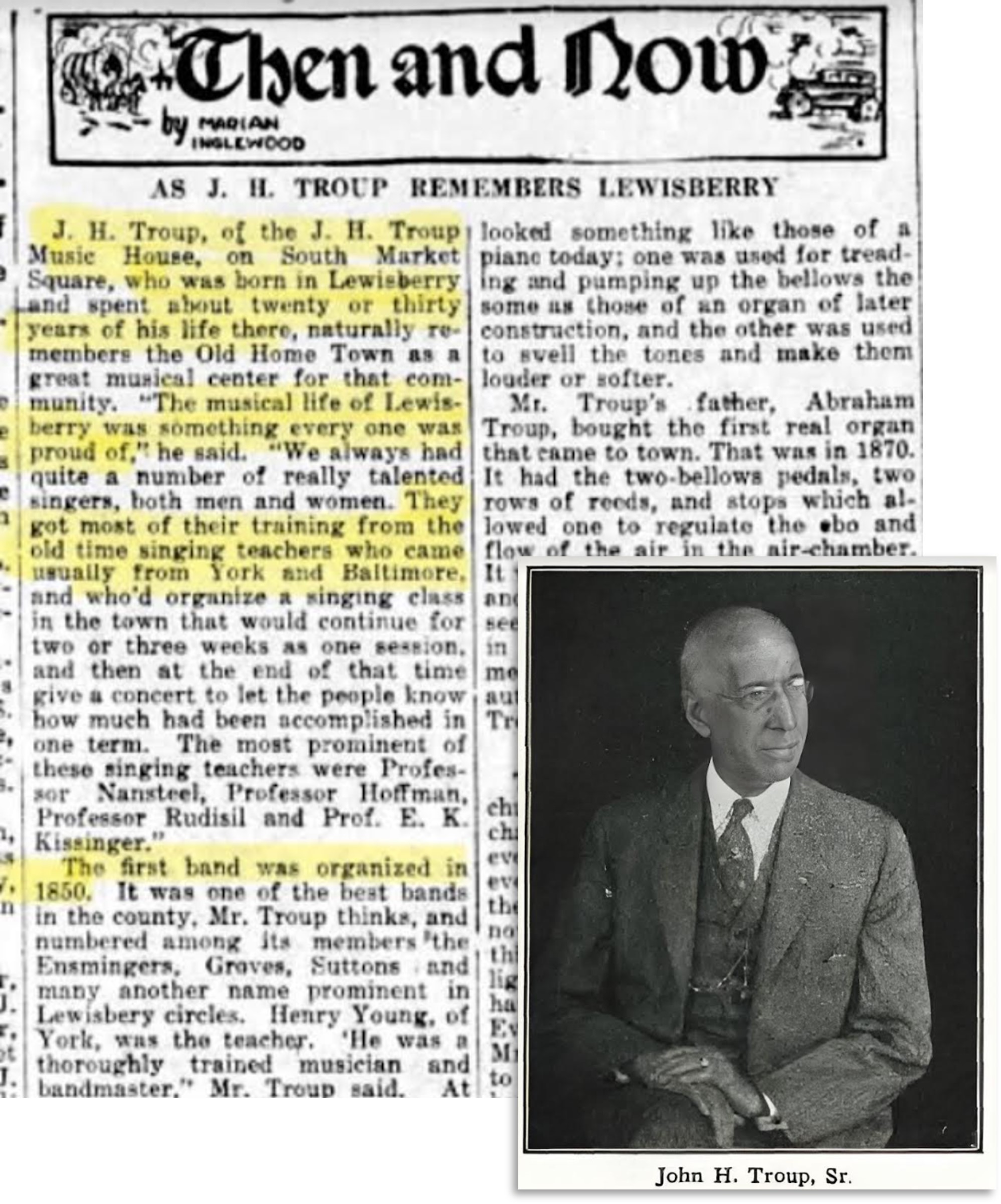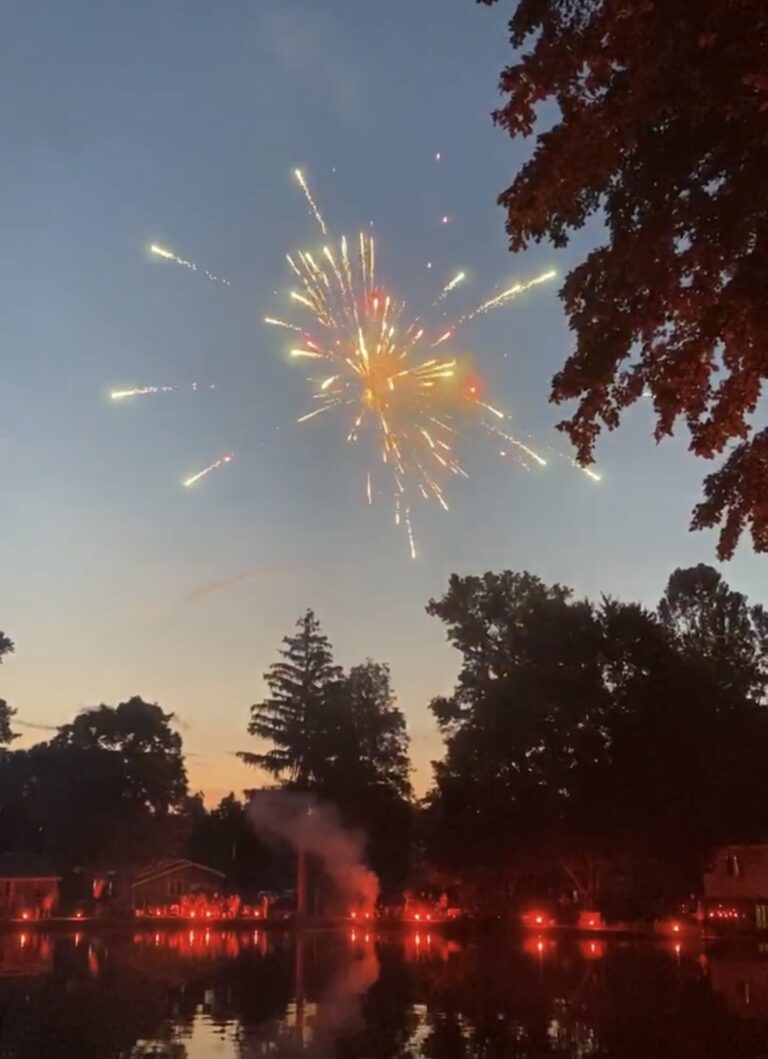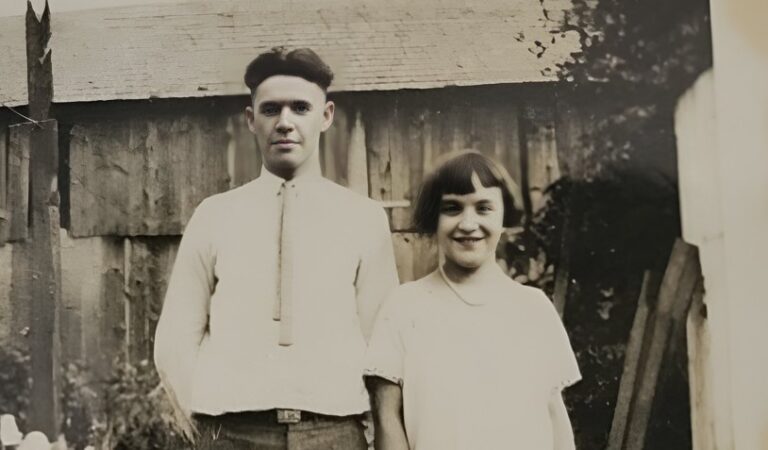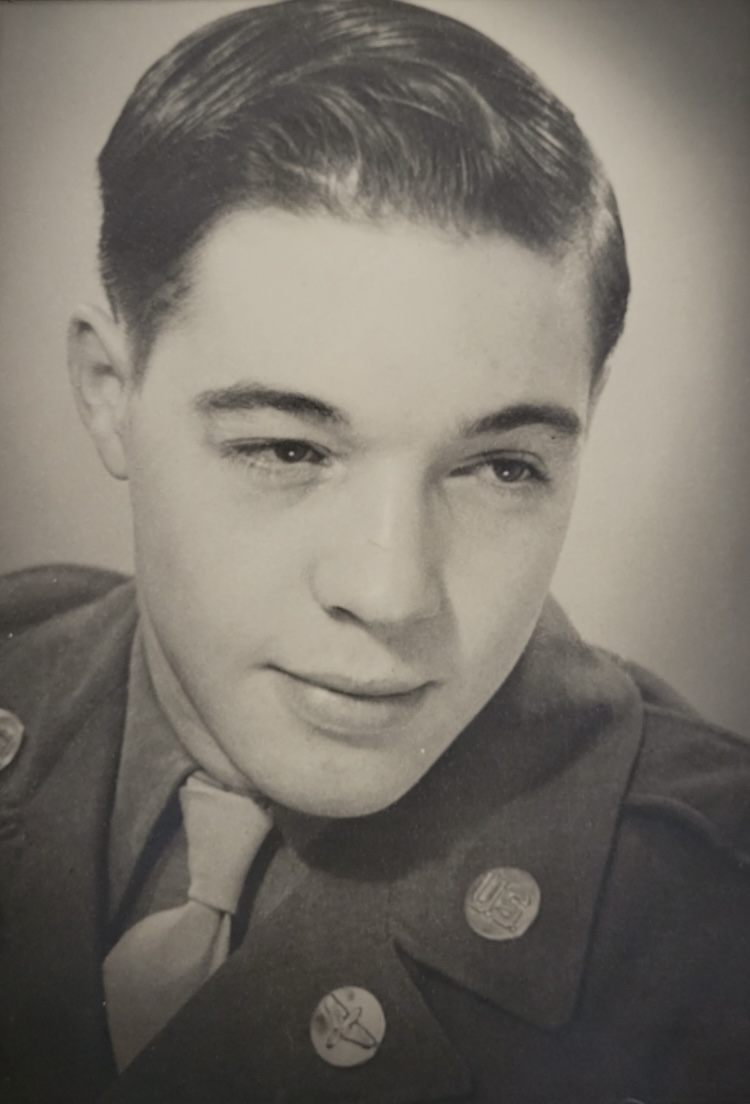The movie The Music Man (Warner Bros., 1962) is a classic musical that tells the story of Harold Hill, a traveling music professor played by Robert Preston. “Professor” Hill arrives in a small town in 1912 and convinces the residents that he can teach their children to play in a marching band. However, his intentions are far from noble, as he plans to abscond with the money collected for band instruments and uniforms. Marian, the town’s sharp and skeptical librarian, played by Shirley Jones, sees through his scheme but eventually captures his heart, leading him away from his con artist ways.
While The Music Man is a fictional story, it is inspired by a real phenomenon in America during the late 1800s and early 1900s. During that time, it was common for traveling music teachers, known as “bandwagoners” or “bandmasters,” to visit small towns and rural communities, providing vocal training for “sings” and “singalongs” and teaching instrumental skills to fledgling musicians eager to join local bands.
An account of this musical tradition comes from John H. (J.H.) Troup, Sr., a resident of Lewisberry, Pennsylvania, whose memories were recorded in the October 3, 1924, edition of the Patriot-News. According to Troup, local talents often honed their skills under the guidance of singing teachers who traveled from nearby cities like York and Baltimore. These instructors would set up temporary music schools in the town, typically staying for a few weeks. The most prominent of these singing teachers were professors. The culmination of their stay was often a concert, where the townspeople could marvel at how much the students had learned. Troup also recalled that Lewisberry’s first band, formed in 1850, quickly gained a reputation as one of the best in the county.
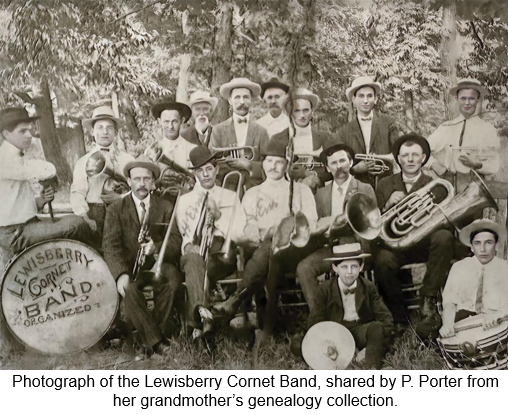
The Troup family’s passion for music extended beyond playing instruments—they turned it into a thriving business. In addition to founding the J.H. Troup Music House, Lewis and Abraham Troup established Troup Bros. Before the advent of recorded and broadcast music, families and communities often made their own music, making the business of selling musical instruments not only profitable but vital to the social fabric of these communities.
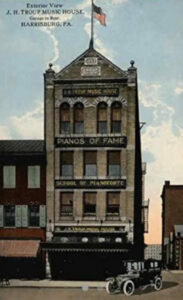
Two figures in the musical instrument trade are highlighted in our book The History of Silver Lake as Told Through Its Deeds and worked in the Troup family businesses. L. Clifford “Cliff” (L.C.) Stonesifer, the son of William Grant Stonesifer and a resident of Silver Lake, worked for Troup Brothers (Lewis and Abraham) and Elmer E. (E.E.) Strominger, worked for the Troup Music House (J.H. Troup ) and was married to Ella Troup. Strominger owned land near Silver Lake and eventually subdivided it, selling lots on the lake’s north side, which enhanced the appeal of the smaller Stonesifer lots along the lakefront. He later became an investor and officer in the Silver Lake Improvement Company, playing a key role in the development of the area.
Note: During our research for the book, we conducted an in-depth ancestry analysis of the characters featured. Interestingly, we discovered that Dominish Marie Miller, one of the administrators of “Preserving The History Of Newberrytown,” a prominent history-focused FaceBook group in York, PA, has Rachel Strominger Gross, the aunt of E.E. Strominger, in her own family tree. Our research into Silver Lake’s origins revealed that there are often only a degree or two of separation between prominent characters, all connected to long established families in upper York County.
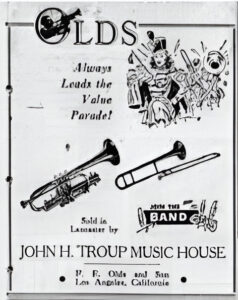
Genealogy, a topic popular with our blog readers, will be the focus of next week’s post.

